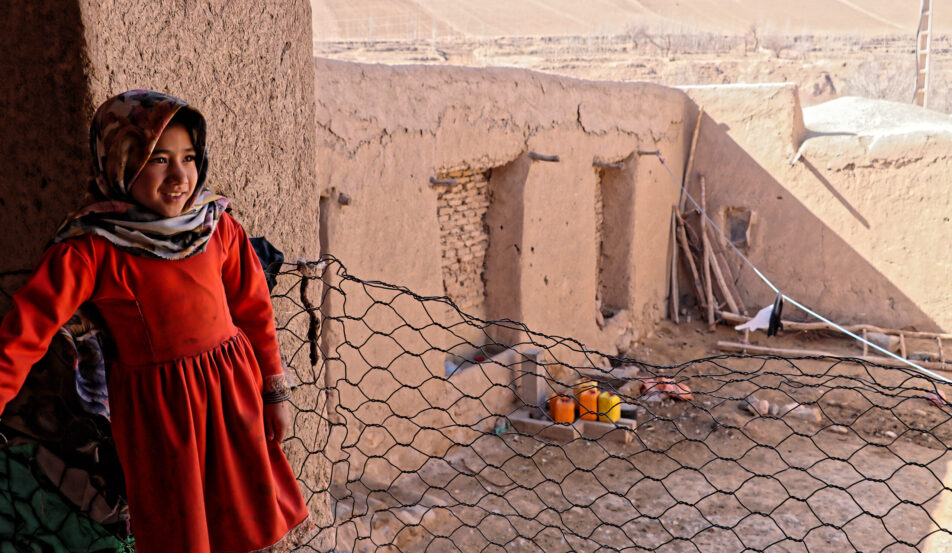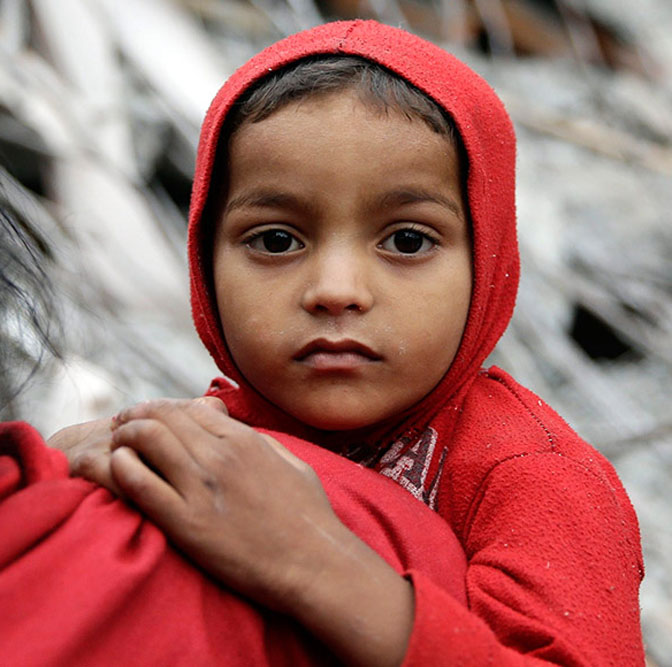Five priorities for children during the COVID-19 crisis
For children in poor communities, the collateral damage from COVID-19 is just as big a risk as the virus itself.
These are some of the ways the pandemic is affecting children in developing communities:
- School closures: Schools have closed, and many children may never return.
- Food shortages: Food is scarce, due to disrupted supply chains and lockdown laws.
- Gaps in healthcare: Health clinics are struggling to cope, and many immunisation campaigns have been suspended.
- Job losses: The psychological stress on families is enormous, with parents losing work and facing an uncertain future.
- Increase in domestic violence: Sadly, this has resulted in an increase in domestic violence, with children both experiencing or witnessing abuse in their homes.
The five priorities of our response intersect to help stop the spread of the virus and mitigate its potential harm, whether direct or indirect, to children and young people.

1. Stop COVID-19 from infecting children and communities
We are distributing soap, hand sanitiser, gloves and masks to families, and personal protective equipment to health workers. Community hand-washing stands are being constructed, and hygiene information is being provided. For children being treated for COVID-19 or subject to quarantine measures, we are creating child-friendly spaces with age-appropriate toys and books.

2. Help children continue learning
With schools closed, we are supporting children’s education through learning programs delivered online or via radio. We remain vigilant and prepared to address the increased risk of online sexual abuse that accompanies children’s greater exposure to the internet, and are focused on increasing the knowledge and self-protective behaviors of children and families who have been moved to rely on the online environment. For students without online access, we are distributing home learning kits with materials and guidelines for their use.

3. Keep children safe from harm
We are supporting community-based child protection systems that identify and respond to cases of child abuse or exploitation, and providing virtual, online and phone-based counselling and emergency safety planning for women and children experiencing violence. We are supporting national social and protective essential services so that they can continue operating, and delivering rapid training to their staff so that they can screen for and respond to vulnerabilities in families. Temporary shelters have been provided for young people who live on the street, and safe care arranged for children separated from their caregivers due to COVID-19 treatment or prevention measures.

4. Ensure that children get the food they need
To help the most vulnerable families keep food on the table, pay rent and cover other basic household needs, we are providing cash transfers. Where possible, we are distributing food and basic household items directly to communities, carefully abiding by COVID-19 protection measures.

5. Supporting young people to play an active role in the response
We will be surveying children to understand their concerns, ideas and opinions. Their feedback will influence our program response. Young people are being given the tools to develop their own videos to share with their peers and the wider community. As we work with governments, local partners and communities to respond to the pandemic, we will ensure children’s voices are heard.
Together, we can protect children around the world from the impacts of COVID-19
Together we will fight to protect children from the direct impacts of COVID-19, and from the cascade of effects caused by the virus, including the economic crisis that is unfolding throughout the world.
Help prevent the spread and impact of COVID-19 in the world’s poorest countries. Support our COVID-19 emergency appeal to help the children and families who are most vulnerable during this crisis.
If you donate before 30 June, your donation is tax deductible on your next refund.


































